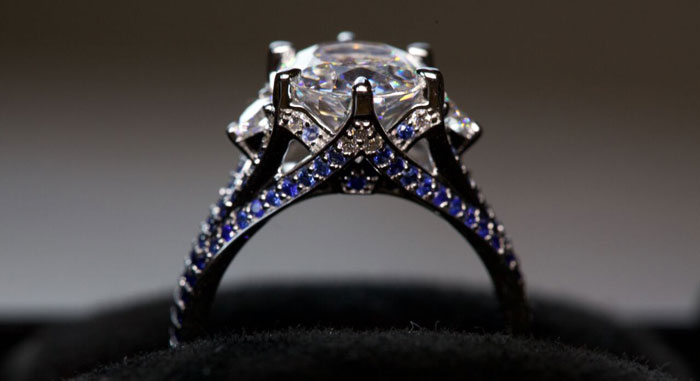
Otago is better known for its gold than diamonds – but this story is about a Wanaka diamond business which competes against the world’s largest retailers, thanks in part to its innovative digital advertising strategy.
The Wanaka firm’s designs have been featured in Vogue magazine and London Fashion Week, and is the latest local business to raise export expansion capital through crowdfunding.
1791 Diamonds, which has already exported millions of dollars worth of its designer engagement rings to Europe, USA and Asia, opted to crowdfund its next export drive into the Northern Hemisphere.
Managing director Richard Prout says the online retailer has developed a sophisticated digital advertising & marketing strategy to compete with big US players.
Prout, who applied his mathematical and programming skills to develop the algorithms, says the company’s custom-built advertising system can reach specific demographics and drill geographically down to the suburb level and time of day if required.
It means they can target customers with high disposable income who are planning on getting engaged but don’t have access to bricks and mortar stores – like oil rig workers and miners. 1791 Diamonds’ custom designed rings sell for a premium in these markets with individual sales reaching as high as $150,000 each.
Prout, a British born tech entrepreneur who has experience building high scale, high growth ventures to serve millions of users, has developed the mathematically based advertising models, using sophisticated digital advertising algorithms (which they developed themselves) to allow them to compete with some of the big US players selling designer diamond jewellery online.
“We get extremely consistent returns over a wide demographic, from people who are remotely located due to work as well as the CBD workers age ranging from 20-35,” he says.
The seven year old company aims to raise $750,000-$2million for 14-30% equity throughout July. He says the capital raised will be used to increase the digital marketing budget and offshore personnel expansion as they move further into the U.S and UK markets.
Prout says increasing export revenue will help to raise gross profit beyond the current 36%.
“We have refined our advertising strategy to the point that for every dollar we spend through adwords in the United Kingdom, we get back another five dollars in sales revenue within six weeks. The Northern Hemisphere market is critical in our expansion plans as it allows us to sell through two engagement seasons,” he says.
The company has positioned staff in the UK and US export markets to maintain local customer service.
“Our ecommerce infrastructure and marketing strategy have been developed, tested and proven successfully over several years, we’re now well positioned for further global expansion,” he says.
1791Diamonds.com crowdfunding round launched on the Snowball platform last week and closes on August 9.
Prout says one the biggest challenges of getting the business to this point have been starting in the middle of the GFC. “When we launched in 2008, consumer confidence and expenditure of luxury items was at a low, at the same time this forced us to up our game significantly – we’re on a better growth platform today because of it.”
He says consumers have got over their fear of ecommerce and even high ticket items are being purchased in increasing volumes with the online jewellery market growing at 25% per annum.
“While it began with necessity, with workers stationed remotely relying on the online channel to provide a selection, it has evolved to the point that we can now offer a superior level of service than bricks and mortar retailers,” Prout says. “We have a range of online tools that allow us to interact with our customers and custom design engagement rings wherever they are in the world.”
Prout, whose last two tech startups sold for $120 million, says crowdfunding was the logical move to secure expansion capital. “In New Zealand there is a lack of venture capital for companies in the $1-$10million range. Crowdfunding has filled a gap for some of our most innovative tech companies.”
- More at www.snowballeffect.co.nz/offers
Share this Post


